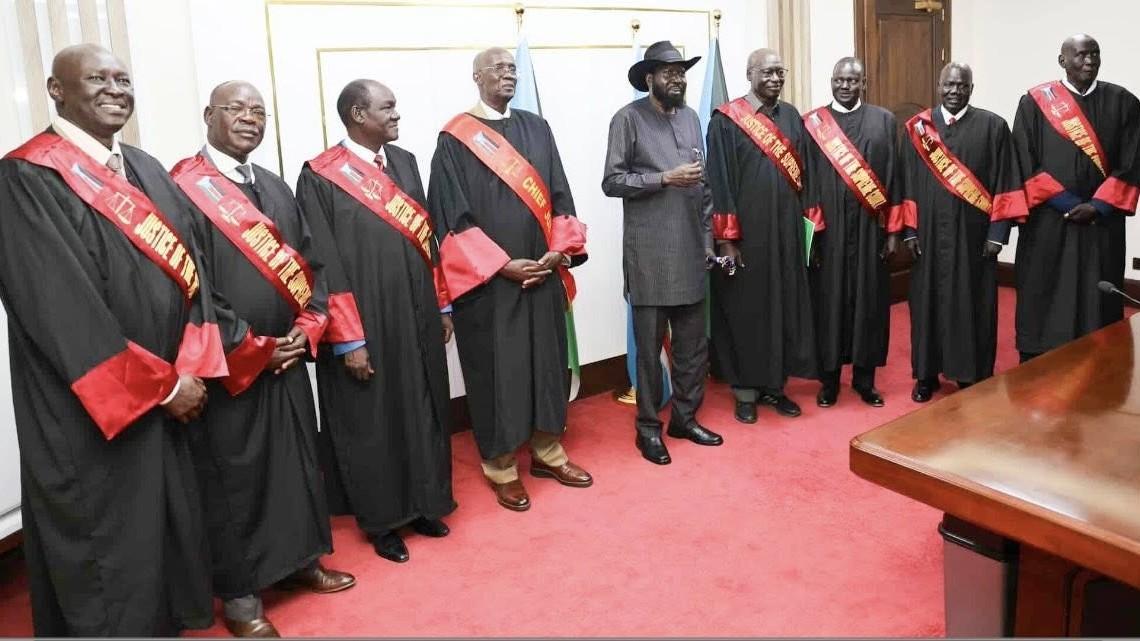Africa-Press – South-Sudan. President Salva Kiir Mayardit has sworn in six newly appointed Justices of the Supreme Court, urging them to uphold justice with integrity and contribute to an independent judiciary that serves the people of South Sudan during a pivotal time in the country’s transition.
The ceremony, held Tuesday at the State House in Juba, marks a significant moment for a judiciary long under scrutiny for delays and allegations of political interference.
President Kiir described the appointments as more than just career advancements — calling them a “renewed expression of trust and commitment to the principles of justice.”
“Their conduct,” the President stated, “must reflect the dignity and integrity of the office they now hold.”
The President also reaffirmed his administration’s pledge to strengthen the judiciary and ensure it functions independently and efficiently.
The Chief Justice, Dr. Benjamin Baak Deng, echoed these sentiments, highlighting the need to rebuild public trust in the legal system.
He acknowledged that the backlog of unresolved cases had undermined confidence in the judiciary and committed to clearing it, stating that “Justice delayed is justice denied”.
The appointments come as South Sudan inches toward national elections and continues implementing key provisions of the 2018 peace agreement.
The judiciary’s performance in the coming months, legal experts say, will be critical, particularly in resolving election-related disputes, enforcing the rule of law, and protecting human rights.
While the identities of the six new Justices were not immediately made public, officials say their appointments were vetted through a judicial reform process under the Revitalized Agreement on the Resolution of the Conflict in South Sudan (R-ARCSS).
The peace deal, signed nearly seven years ago, calls for institutional reforms across the government — including in the justice sector.
But the country’s judiciary has long faced structural challenges: underfunding, poor infrastructure, lack of legal professionals, and limited access to justice for citizens in rural areas.
Human rights groups have also expressed concern about arbitrary detentions and prolonged pretrial detentions due to slow court processes. In this context, Kiir’s call for judicial integrity struck a hopeful but cautious tone.
For More News And Analysis About South-Sudan Follow Africa-Press






